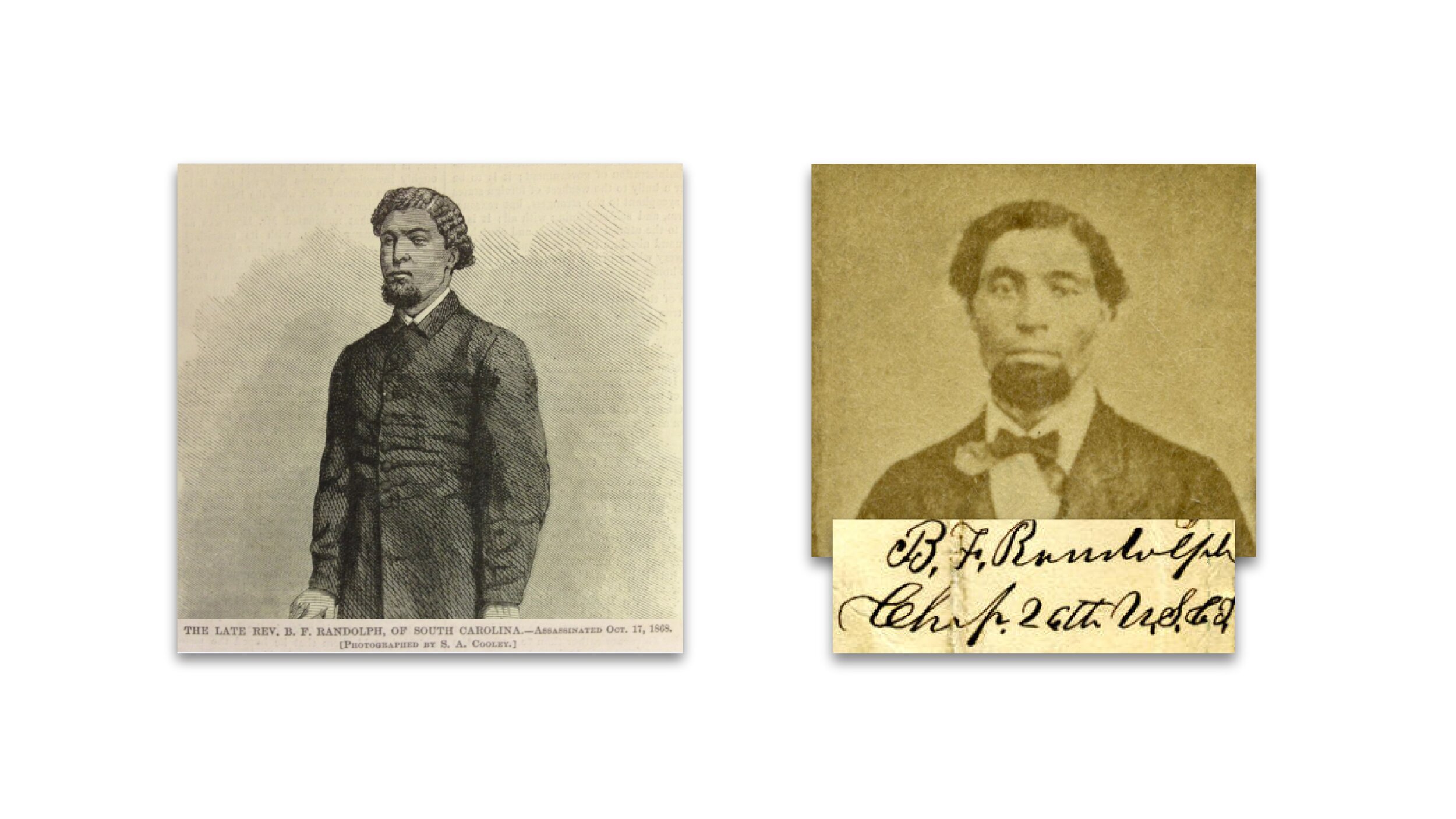
More About Randolph
Benjamin Franklin Randolph was born a free black in Kentucky around 1820. He grew up in Ohio and graduated from Oberlin College in 1862. Although ordained as a Methodist Episcopal minister, he served as a Presbyterian chaplain for the 26th U.S. Colored Troops. He settled in Charleston, S.C. after the Civil War and worked as an assistant superintendent of schools for the Freedman’s Bureau.
Randolph entered politics as an active Republican in 1867 and by the next year represented Orangeburg County at the constitutional convention. He endorsed several constitutional proposals, including a ban on racial discrimination, but they did not pass. He did not support universal suffrage, and supported the exclusion of the right to vote for illiterates and those who did not pay the poll tax. However, his strong belief in education led him to support the integration of public schools.
Randolph is quoted as saying: “The time has come when we shall have to meet things squarely, and we must meet them now or never. The day is coming when we must decide whether the two races shall live together or not.”
Rising as high as chairman for the state central committee of the state’s Republican convention, Randolph helped campaign for the party in 1868. As he stepped off a train platform at Hodges Station in Abbeville County on Friday, Oct. 16, 1868, white men shot and killed him. His body was set to go to Charleston but his assassination had raised alarm there and he was buried instead in Columbia, probably in the public cemetery. His colleagues in the state legislature honored him at their next session. He was reburied at the cemetery named in his honor in 1872. More information about Randolph can be found in this brief article by William Hine: https://www.scencyclopedia.org/sce/entries/randolph-benjamin-franklin/
Although he had a brief political career, Randolph fought for his sincerely held beliefs about public education and the integration of the races. His death was a terrible act of political violence and the cemetery is a fitting tribute to his memory.